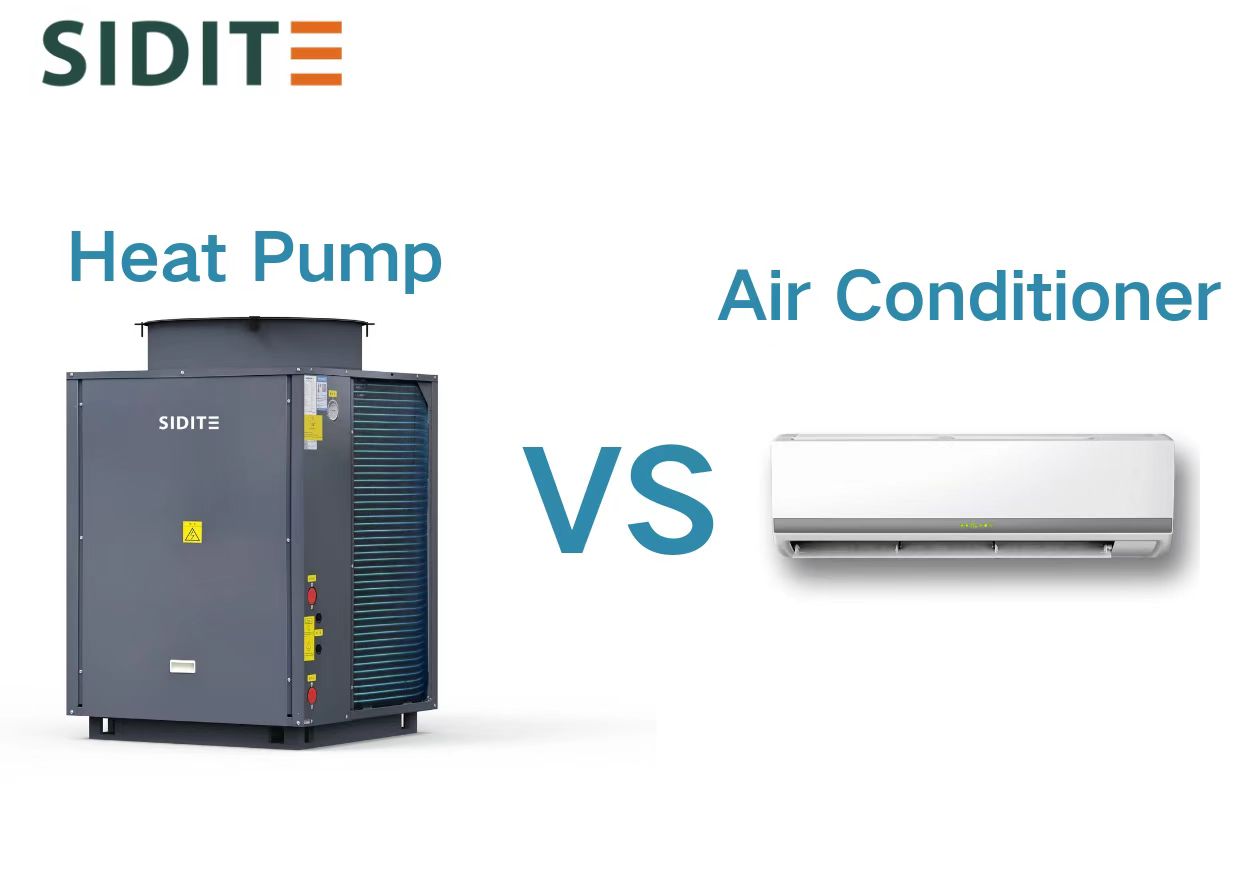Seven Advantages of Heat Pumps over Air Conditioners

Heat pumps have various advantages over air conditioners, especially in terms of comprehensive performance and energy efficiency. The following are the main advantages of heat pumps over air conditioners:
1. Energy efficient
Higher energy efficiency for heating:
A heat pump heats by extracting heat from the air, water, or ground rather than relying on electrical resistance heating. It typically has an energy efficiency ratio (COP) of 3-5 times, meaning that 1 unit of electrical energy can produce 3-5 units of heat.
Air conditioners usually rely on electric auxiliary heating for heating, which is less energy efficient.
Year-round energy efficiency:
With both cooling and heating functions, heat pumps offer more significant year-round energy savings than air conditioning (cooling in summer) and other heating equipment (heating in winter) alone.
2. Excellent performance at low temperatures
Heat pumps, especially air-source heat pumps and ground-source heat pumps can still operate efficiently in low-temperature environments.
Some air-source heat pumps adopt low-temperature enhancement technology, which can provide stable heating even at temperatures of -20°C or even lower.
In air conditioners in low-temperature environments, heating efficiency drops dramatically, often requiring electric auxiliary heating, and energy consumption increases sharply.
3. Multifunctionality
Heating, cooling, and hot water:
Heat pump equipment can usually realize the combined functions of heating, cooling, and domestic hot water (e.g., air-source heat pump water heaters). This makes it a multi-purpose device, reducing the need to install multiple devices.
Air conditioners typically only have a cooling function, and some heating and cooling air conditioners have a heating function, but not a hot water function.
Year-round use:
Heat pumps are suitable for year-round operation and perform well in both summer cooling and winter heating, making them particularly suitable for domestic and commercial users with high comfort requirements.
4. Environmentally friendly
Heat pumps use renewable energy (e.g. air heat, geothermal heat) as the main energy source, with electricity as the auxiliary power. Heat pumps have lower carbon emissions than air conditioners and electric auxiliary heating equipment that rely solely on electricity.
In the current context of promoting low-carbon environmental protection, heat pumps align with the trend of green building and sustainable development.
5. Higher comfort
Uniform temperature:
Heat pump heating is usually supplied through underfloor heating or low-temperature hot water systems, with more even heat distribution and higher indoor comfort.
Air conditioning heating uses hot air, which tends to cause uneven heating and cooling or a dry feeling.
Quiet operation:
Heat pumps run with low noise, especially air source heat pumps or ground source heat pumps installed outdoors, for a quieter indoor experience.
Air conditioners can be noisy at high power levels for heating or cooling, and the noise from the indoor unit may be more noticeable.
6. Long-term cost advantages
Although the initial investment in a heat pump is higher than that of an air conditioner, its operating costs are lower (especially during the heating season). Heat pumps are more cost-effective in alpine regions or in scenarios where year-round use is required.
The service life of heat pumps is usually longer than that of ordinary air conditioners, especially ground-source heat pumps, and maintenance costs are also lower.
7. Supporting Policies and Subsidies
In many countries or regions, heat pumps enjoy government subsidies or tax incentives due to their energy-saving and environmentally friendly characteristics, which makes them more attractive to consumers.
Air conditioning equipment usually does not enjoy similar subsidies.
In conclusion, the outstanding advantages of heat pumps lie in their versatility, energy saving and environmental protection, and low-temperature adaptability, which are particularly suitable for users focusing on comfort, running costs, and sustainable development.